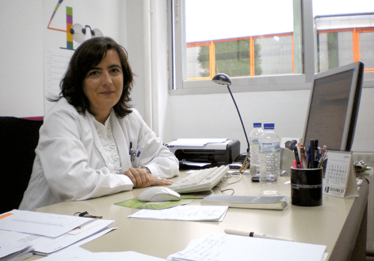In Spectroscopy and in Health
Sitting Down With... Maria Montes-Bayón, Associate Professor in Analytical Chemistry, Department of Physical and Analytical Chemistry, University of Oviedo, Spain
Tell us about your current role…
In addition to my role as Associate Professor in analytical chemistry, I have recently taken on a new administrative position within the faculty, which takes up a good deal of my time. It’s a busy life, but I believe administration is something you should try, at least once. Not everything runs like chemistry, so it widens your horizons. Plus, you never know what interesting new connections you might gain as a result.

What was your route into this field?
My PhD was diverse, involving microwave-induced plasma with atomic emission spectroscopy, gas chromatography-inductively coupled plasma-mass spectrometry (GC-ICP-MS) for small molecules and high performance liquid chromatography (HPLC)-ICP-MS for large proteins. Along with my postdoc with the Joe Caruso group at the University of Cincinnati, I realized I had a real interest in clinical and biomedical science. When I returned from the US, the Spanish government had opened some positions at the university, offering good salaries, five-year contracts and the possibility of a tenure track. I got one of these prestigious positions, and decided to focus on biomedical and clinical analysis, specifically biomarkers.
Why focus on these areas?
Health is clearly an important topic, and developing analytical strategies to improve early detection of disease is something that can really help communities. When I came back to Spain it was the time of quantitative mass spectrometry, and so we decided to focus our ICP-MS research on quantitative aspects. Here, isotopes are a basic – but interesting – tool.
What are you working on now?
After coming from the US I joint the Analytical Spectrometry group, led by Alfredo Sanz Medel, who retired about a year ago. Alfredo is a leader, not only in this university, but also in the spectroscopy community. After his retirement the group split into different fractions and our group is now named Mass spectrometry and Biomedical analysis. Within this field, I’ve been conducting research in two defined topics. One is iron-related proteins and iron homeostasis; essentially, developing methods for the determination of transferrin, a protein with a role in anemia. Transferrin is measured in many hospitals, but the various spectrophotometric methods used often lack precision and accuracy. My other focus is on oxidative stress parameters, proteins and metalloproteins. We develop quantitative strategies for analysis of proteins related to oxidative stress, such as superoxide dismutase or glutathione peroxidase and use ICP-MS as an elemental detector to determine the concentration of metals or metalloids in these proteins. Another part of my research is looking at how metallodrugs, such as cisplatinum- or ruthenium-based drugs, interact with DNA. We are working on a method to detect how effective these drugs are and whether they cause cell damage, which is the aim of chemotherapy.
What drives you?
When something that I’ve predicted turns out to be true, particularly in areas that have relevance for human health, it gives me a real boost. Right now, we’re dealing with new treatments for iron deficiency. Using nanoparticles to overcome iron deficiency is a hot topic (so nanoscience really is everywhere, including the clinical field). Recently, we ran a typical iron speciation experiment with HPLC-ICP-MS, and made some predictions. My student corroborated our result using transmission electron microscopy. We found that cells uptake and manage these nanoparticles without apparent cell toxicity. So, this would mean more efficient treatments for Fe-anemia with lower secondary effectsIn the end, helping people is what matters. I wouldn’t be able to just run organic or inorganic synthesis of compounds without knowing what applicability they’re going to have in ten years (although this is also a necessary field of research). I am an inpatient person and like to see immediate results!
What was your best moment in science?
When I received the Bunsen-Kircher award from the German Society of Spectroscopy in 2013. The members of the society are knowledgeable and are at a very high level, and the fact they thought I was eligible for this prize made me feel that all the effort I put into my work was worth it.
How do you see your research developing in future?
Analytical chemistry develops methods, but if these methods are not known, or not used by other communities, they are a waste of time. I think the most exciting part of this job is when the things we have developed are acknowledged by other people – particularly, those from other fields, such as biology or biochemistry. For instance, about two months ago, a call came from an institute in Catalonia related to genomics research. They wanted to measure specific mutations in DNA but they don’t want to deal with the analytical chemistry. Of course, that is our favorite part, so I foresee a successful collaboration. Multidisciplinary approaches are the fastest way to advance in science.
Associate Professor in Analytical Chemistry, Department of Physical and Analytical Chemistry, University of Oviedo, Spain.















